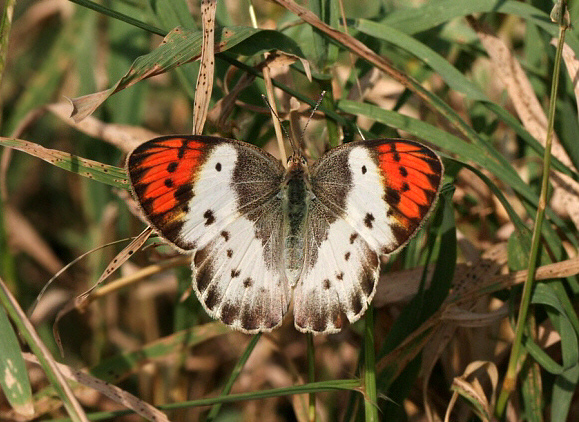
Introduction
The genus Colotis comprises of 40 species, 39 of which are primarily or entirely Afrotropical in distribution. The majority of species have pure white uppersides, with prominent orange, yellow or crimson tips to the forewings. The undersides of most are pale whitish or buff, marked with sooty blackish submarginal spots, and a band of smaller post-median spots.
Males of danae are pure white, with a suffused blackish sub-apical bar, and purplish-red wing tips, although in East Africa the tips tend to be closer to orange. A female from Ethiopia is depicted above. Females from West Africa are similar, but are paler, and more lightly marked. The ground colour of dry season forms is sometimes pale buff, rather than white.
Colotis danae is a widespread and fairly common insect, distributed from Gambia to Ethiopia and south to Angola, Namibia, Mozambique and South Africa. It also occurs in s.w Arabia and on the Indian subcontinent.
Habitats
This is primarily a savannah / Acacia scrub species, but it can also be found on steppes, farmland, coastal habitats and gardens. It’s altitudinal range is from sea level to about 2000m.
Lifecycle
The larval foodplants include Cadaba, Capparis and Maerua ( Capparaceae ).
Adult behaviour
Both sexes commonly nectar at Cadaba. They are very active butterflies, rarely pausing for more than a moment or two, flying rapidly from flower to flower. When temperatures are cool, early or late in the day, they will bask on bushes or among grasses, with their wings held half open.
